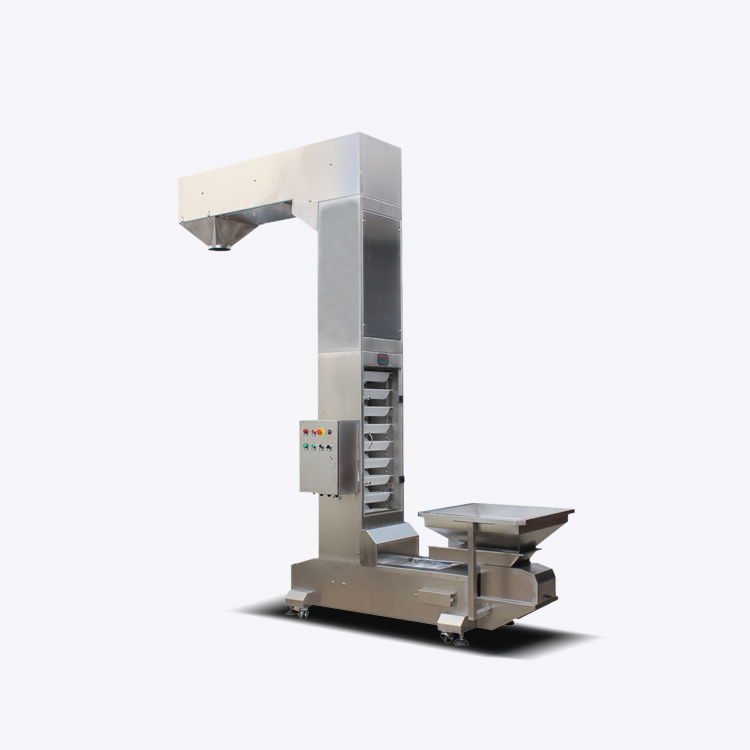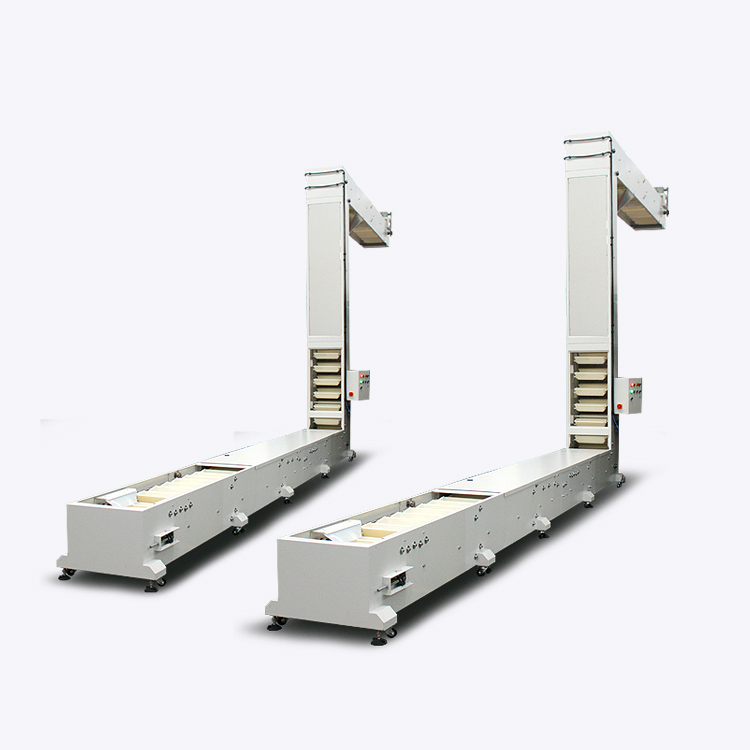2020-08-26
Bucket elevators or bucket conveyors are designed for vertical or high-lift delivery of large amounts of materials. They are used to pick up various materials from the ground and lift them to different heights. They can also be used for horizontal transportation of materials. The weight of the bucket components loaded on both sides of the conveyor keeps the system balanced, thereby reducing energy consumption.
What are the different types of vertical bucket elevators?
Centrifugal bucket elevators: These types of bucket elevators are used to move bulk materials. The buckets in these elevators are used as loading equipment. When the material passes under the luggage wheel or sprocket, the material will be picked up by the bucket. Then, the centrifugal force on the pulley head discharges the material from the bucket to the discharge chute. Buckets are installed at specific intervals to prevent emission interference from other buckets, which operate at very high speeds.
Continuous bucket elevators: These elevators are specifically designed to handle fragile materials, and extra care must be taken when handling to avoid damage or degradation. Continuous bucket elevators are mainly used to transport light materials that should avoid aeration. The material is added to the bucket through the feed chute. In these elevators, the buckets are tightly positioned on the belt, and they travel at a relatively slow speed, helping to prevent material from spilling.
Positive discharge bucket elevators: These are similar to centrifugal bucket elevators and are ideal for conveying food-grade materials. The positive discharge hopper elevator is the most suitable for the material, it really sticks to the side of the hopper. The positive discharge bucket elevator rotates at a lower speed, and the bucket unloading is performed using a mechanical trip.
What is the material handling capacity?
The material handling capacity of bucket conveyors depends on productivity. The material handling capacity of a bucket elevator depends on the amount of material conveyed, the size and design of the bucket, the number of buckets per foot and its operating speed.
What are the benefits of vertical bucket elevator?
Bucket conveyor can handle various materials. For this reason, they are made of materials that are resistant to abrasion, so that they can rise in various weather conditions. The completely enclosed design helps protect fragile and lightweight materials from external impurities and dust. While maintaining quality and lasting strength, it has the best ability to transport materials in all directions. Bucket conveyors are cost-effective, risk-free, and come in different sizes and shapes.
Maintenance requirements of vertical bucket elevator
Bucket elevators need to be cleaned regularly during maintenance, and the parts are lubricated and tensioned. Cleaning the bucket is essential to avoid the accumulation of fine particles. The deposition of fine particles can cause damage to the bucket and even damage to conveyor gears such as chains.
The bucket conveyor has excellent transport capacity, and the maintenance rate is extremely low, the durability is strong, and the material can be conveyed smoothly and quickly.
Disclaimer: This article is reproduced from other media. The purpose of reprinting is to convey more information. It does not mean that this website agrees with its views and is responsible for its authenticity, and does not bear any legal responsibility. All resources on this site are collected on the Internet. The purpose of sharing is for everyone's learning and reference only. If there is copyright or intellectual property infringement, please leave us a message.
©copyright 2009-2020 Sir Daily Contact Us SiteMap